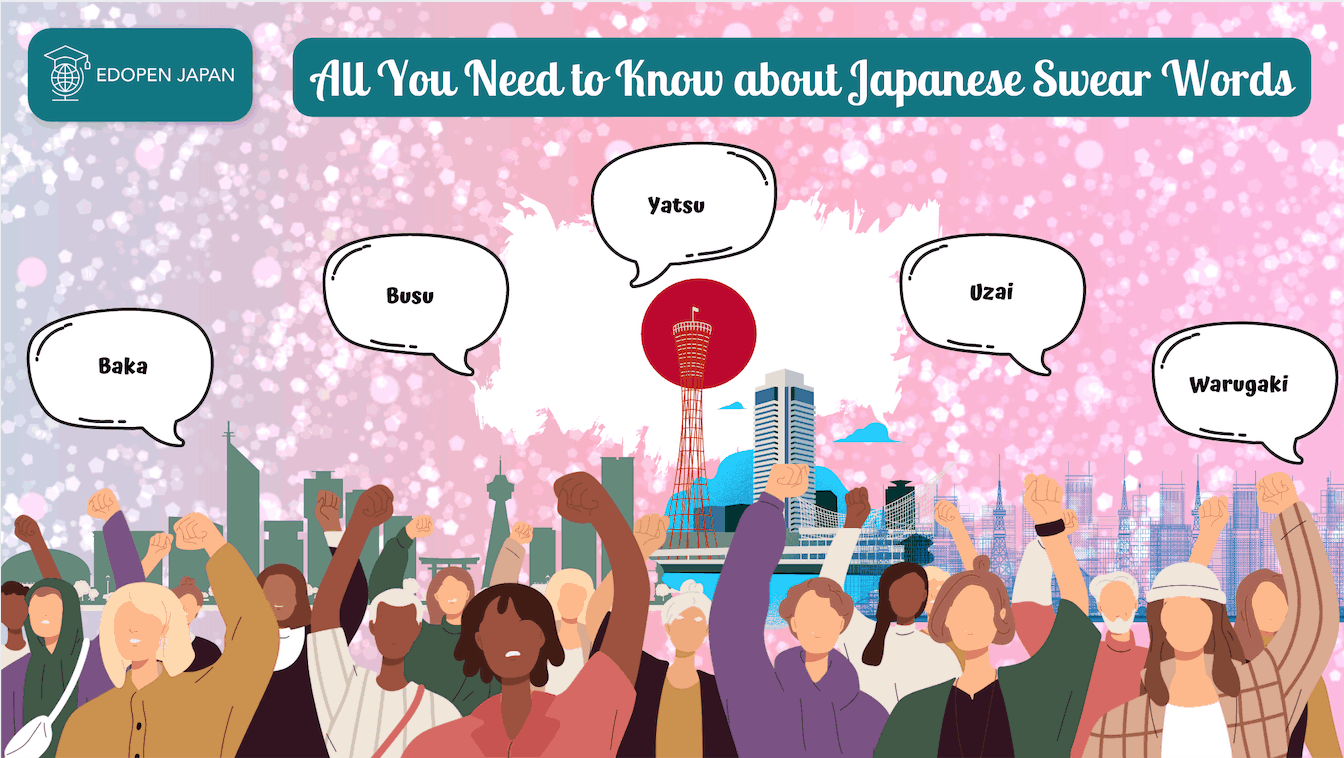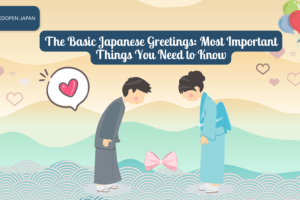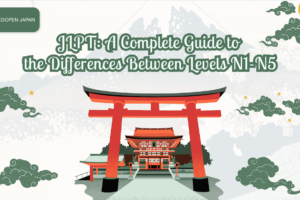Japanese is known as a language that has a soft tone and pays great attention to politeness. Respect is also very important in Japanese. The use of Japanese vocabulary is also very specific and must be studied so that you don’t misuse it.
Once you have learned Japanese to a certain level, learning rough Japanese may become a necessity. While some Japanese teachers may be uncomfortable explaining this offensive language, it can be important to know it in order to avoid using it or to be able to understand situations when you hear native Japanese using it.
In this article, we will discuss some Japanese slang that you should avoid and understand what it means and how it is used. We hope you will find this discussion useful.
In addition, if you are also studying Japanese language and culture, you may find it helpful to learn more about some of the phrases and sentences that are often used in everyday Japanese conversation. Please see our recommendations below:
Read also:
11 Great Ways to Express Sorry in Japanese
15 Great Ways to Say Thank You in Japanese
The Most Valuable Things to Know about “Wakaranai (分からない)”
Contents
Why is it important to learn Japanese swear words?
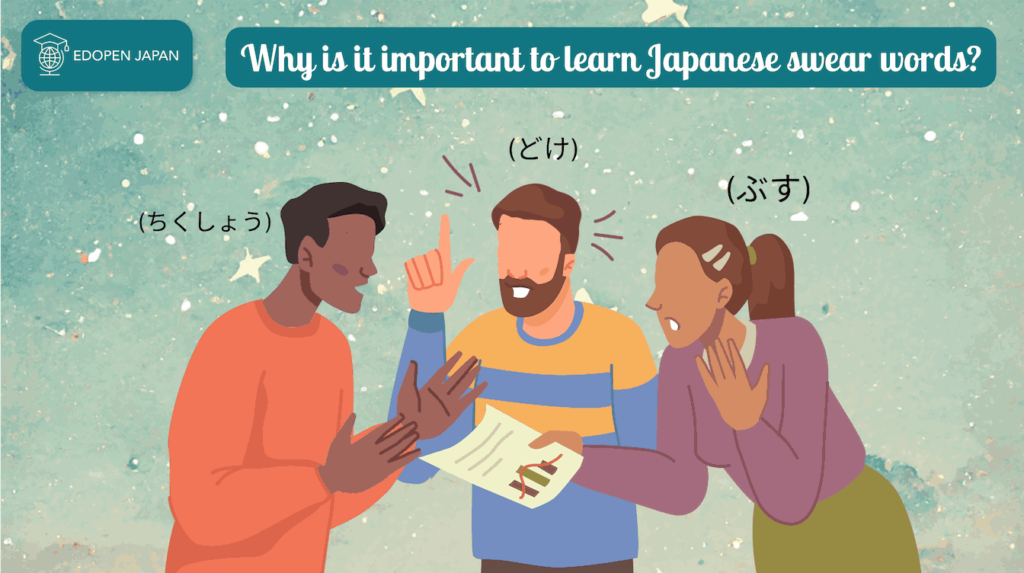
Japanese is known as a language that values politeness and respect. Learning swear words may seem like the opposite of this value. However, native Japanese also have a certain way of expressing themselves, including using taboo words and even swearing to express certain feelings or situations they face.
They may be so irritated, really angry, disagreeing about something, being pressured, or even being chased by a certain deadline that is so full of pressure that swearing is the only way to get rid of the discomfort.
For foreigners, it is very important to learn these Japanese swear words to understand the situation when you hear your colleagues, friends or even seniors who are native Japanese utter these swear words. If you understand the situation, you will certainly understand how to behave.
In addition, you may be better off not using the swear word for the rest of your life. However, if you have to use it in an emergency to show your friends your true feelings or just to bluff, it can be an option. Just remember to be really careful when using it.
A list of rude Japanese words to avoid!
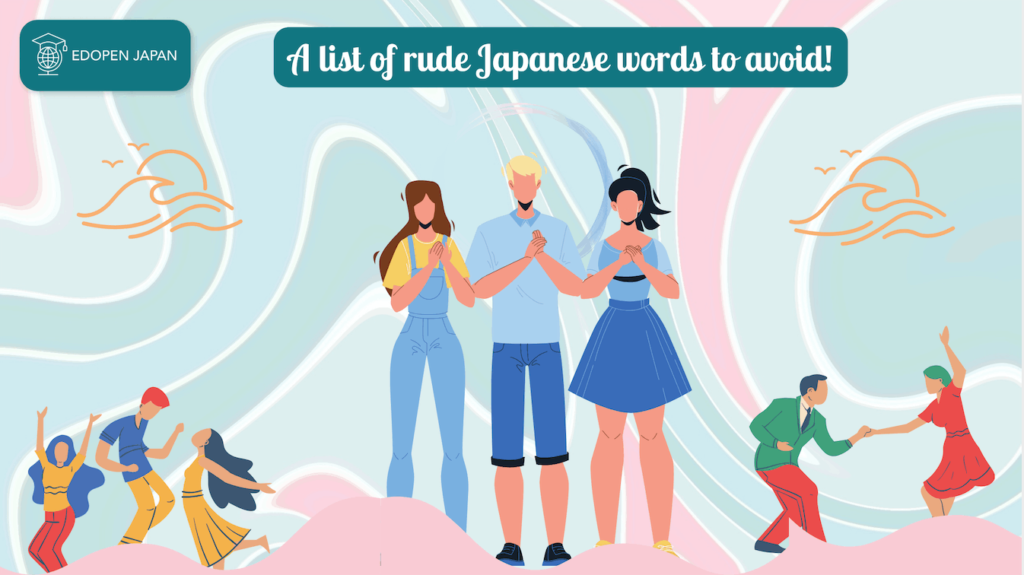
1. Baka (ばか)
Meaning: Stupid
Let’s start with “baka,” which is no stranger to many of us.
When foreigners first came to Japan, they were probably told that this term was very offensive. It was taboo for me at first, but over the years of living in Japan, I have seen it used playfully among my peers.
However, there is a fine line in the use of this term. I wouldn’t suggest using it in the workplace or with people you don’t know, especially superiors. It can be incredibly insulting to call someone “Baka” when you just met them 20 seconds ago.
A term often seen in anime and manga, I find myself using the term “Ah, I’m so baka” when playfully joking that my absent-mindedness has caused me to forget important information.
2. Busu (ぶす)
Meaning: Ugly woman
If this term is used to describe someone, we would feel that person is beyond comparison and description to deserve such a title. I have not heard such a term used, and if it were to be used, it would probably be in a playful environment. We would not recommend the use of this term in any given situation.
3. Yatsu (やつ)
Meaning: ‘guy’ in a violent manner (of lower status)
At first glance, this rude term may come across as, “what?”
However, this term is slang. It is often used when talking about a 3rd person who is less favorable. It can be said in a condescending and violent way, putting the other person in a lower status than the speaker.
4. Uzai (うざい)
Meaning: Pain in the ass
We think we have all met a few people in our lives that we would like to call such. This term can also be used to indicate annoyance and noise (e.g. someone who talks so much that it becomes annoying). To emphasize the pain and annoyance, this term can also be stretched into “uzaiiiii,” like “urusaiiiii” (which shows that it is noisy).
5. Chikushō (ちくしょう)
Meaning: Sh*t!
Guilty as charged, I have said ‘sh*t!’ in real life a few times.
Unlike English, this term is rather longer than its English counterpart. This term can be used in a wide variety of situations from forgetting an assignment to losing a bet against a friend.
This term also sounds quite catchy and isn’t very vulgar.
6. Warugaki (わるがき)
Meaning: Brat
In anime, whenever we heard ‘…gaki’, I always associated it with ‘brat’ because this term was usually used when the character is annoyed and calling the younger party this term.
This term is often used with people who are younger than the speaker. Why yes, you could also use this term in a dispute with your younger sibling(s).
7. Doke (どけ)
Meaning: Get out of my way!
I will tie this term to anime again (oops!) Imagine the characters running or chasing one another, and ‘doke!’ is used in this scene.
Now, imagine, you are chasing a thief. This term will be used to draw the attention of passersby-s to move out of your way during your chase. It is not a polite way to get someone’s attention to move out of your way, but if you really need to make it through the crowd in a hurry…
Next on, we will move on to phrases and words that are ruder than the ones that we have gone through so far.
8. Bakayarou (ばかやろう)
Meaning: A**hole/ idiot
Following the first term we listed here, this term is a much more vulgar word and phrase.
It is sort of a level-ed up term for ‘baka’. It shows you have had enough!
9. Shinjimae (しんじまえ)
Meaning: Drop dead/ go to hell
Self-explanatory.
Often used when the speaker has had enough with someone. If a resolution cannot be reached during this dispute, you could choose to walk away with this term (like a scene out of a drama). Or when you were hurt badly by another, this term is welcome to be of use.
For its’ crudeness in meaning, I would say this term is used for situations of extreme frustration, anger, annoyance, and hurt.
10. Kusokurae (くそくらえ)
Meaning: eat sh*t
Similar to ‘shinjimae’, this term is used in a similar context. I would say the speaker’s frustration and anger level are pretty high when using this term.
11. Damare konoyaro (だまれこのやろう)
Meaning: Shut up, you idiot
‘Damare’ is a rather vulgar term and phrase in saying ‘shut up!’. What more with adding, ‘konoyaro’ which means you an idiot or you b*stard. Another leveled-up rude term in the Japanese language. This term is definitely going to be showing you mean business. It is a rather offensive way to get attention and keep everyone quiet. Be careful when using it.
12. Kuso (くそ)
Meaning: F*ck
Just like its English counterpart, it’s simple but says a lot. This term can also be used to say “sh*t! I would imagine it would be one of the first foul words non-native Japanese speakers would pick up because of its simplicity.
13. Fuzakeruna (ふざけるな)
Meaning: F*ck off/ don’t mess around
An extension to ‘kuso’ is this phrase. Used when the speaker really wants the other to go away and leave them alone. A term that is not to be messed around with. It carries a lot of vulgarity in its tone and speech when used. I would also say, use this when your tolerance has run dry for a while.
14. Kutabare (くたばれ)
Meaning: F*ck you
Unlike the previous ones, this one is used and directed at a person or object. Honestly, they’re all pretty self-explanatory, aren’t they?
15. Shinee (しねえ)
Meaning: die
Finally, one of the most vulgar words and phrases. This word and phrase indicates that the speaker wants the listener to be gone. Gone from this world. To me, it is rather rude to want someone to be gone from this world. But this phrase is usually used among close friends rather than family. This word, if not used carefully, can ruin relationships. Although it can be used playfully, it is still distasteful to use such a vulgar term.
The dark side of slang expressions in Japanese
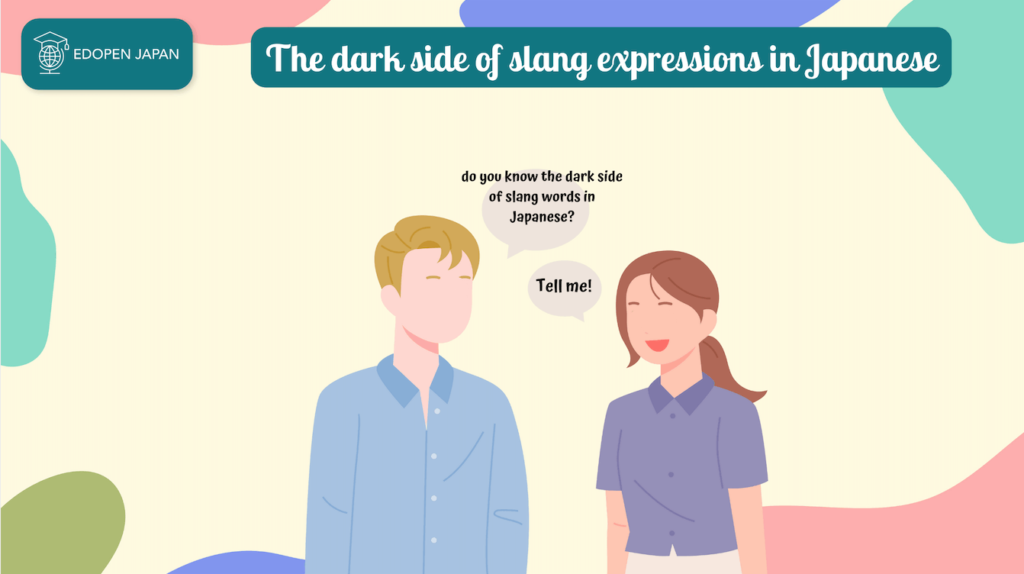
Again, learning some Japanese slang phrases or words is highly recommended. However, the intention is not to use them in a brutal and out-of-context way just to suggest to your colleagues that you know the slang words.
Using slang without direction and boundaries can also make you look uneducated, very rude, disrespectful, and even stupid. This is the dark side of using these slang words.
Therefore, learning these slang words or phrases can be very useful for you to understand certain situations when you hear your colleagues using these words. And you can decide what to do or how to act. So you have a framework and a deep understanding of why that slang word can be used. This will be an additional point for you in understanding Japanese language and culture.
Summary
So, how does it feel to have read and gone through some of the rude words that can be found in the vocabulary of the Japanese language?
Most of these words, phrases, and slang can be found in anime and manga. Although if you were to ask me, I honestly doubt that some words like “doke” and “yatsu” are actually used in everyday conversation.
These phrases are rarely used with people you don’t know, especially in the workplace. Although they can be used in jest, when used in a different way and with a different tone, it can change the game entirely. So be careful with these terms, phrases, and slang. Timing and audience are key when using these phrases and words.
What starts out as a joke can turn ugly. We hope you enjoyed learning the meaning of some rude words in Japanese and when to use them. See you next time.

